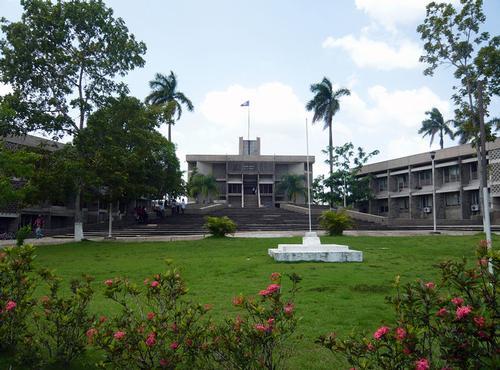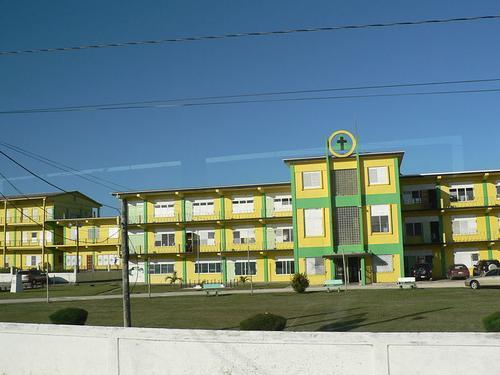BELIZE
Society

Society

Society
State structure

Belize has only been independent since September 21, 1981, making it the youngest independent state in Central America. Britain initially remained responsible for foreign affairs, defense and internal security. The British monarch, currently Elizabeth II, is the head of state and is represented by a governor-general, who must be of Belizean descent.
The Parliament consists of a House of Representatives, whose 29 members are elected for five years by universal suffrage, and a Senate of eight members appointed by the Governor General (five on the nomination of the Prime Minister, two on the nomination of the opposition and one in consultation with the UK Belize Advisory Council). The Governor General also appoints the Prime Minister and, on his intercession, the members of the Council of Ministers. Legislative power rests with Parliament, executive power with the Council of Ministers. There is universal suffrage for persons over the age of 18. Belize is divided administratively into six districts: Belize, Cayo, Corozal, Orange Walk, Stann Creek, and Toledo.
Belize is a member of the United Nations and a number of its sub-organizations, the CARICOM (Caribbean Community) and the Organization of American States (OAS) and the Commonwealth.
Belize has two political parties: the Peoples United Party (PUP), founded in 1950, and the United Democratic Party (UDP) created in 1974 after a merger of several small parties. The first parliamentary elections in Belize were held in 1984. In 1998, the PUP's Said Wilbert Musa won the election with 25 out of 29 seats. This was because the Esquivel government was forced by the World Bank to tighten government spending; thousands of officials were subsequently fired. In addition, VAT was drastically increased. Both of these measures led to this terrible election defeat.
Like Costa Rica, Belize is an oasis of calm from the often hectic Central American political life.
The current Prime Minister Said Musa comes from the People's United Party and has been in office since 1998. The last elections, held in March 2003, won Prime Minister Musa's party again. His party has 22 of the 29 seats in the House of Representatives; the other 7 seats are for the UDP. Prime Minister Musa's PUP has lost 3 seats compared to the previous elections. The current political situation is described in the chapter history.
Education

Primary education is compulsory for children between the ages of five and fourteen. Both primary and secondary education are free. All schools are denominational schools. Approx. 90% of the population can read and write, which is a very high percentage for this region. The government maintains a school for mentally and physically handicapped children. In 1996 there were 245 primary schools and 31 secondary schools.
Special courses are Belize Technical College and Belize Teachers College. The Belize Vocational Training Center in Belize City provides vocational education to, among others, early school leavers. The Belize Youth Development Center and the Belize College of Agriculture provides agricultural education. In 1996 the University of Belize opened its doors.
Sources
Belize
APA
Bradbury, A. / Belize
Bradt
Eltringham, P. / The rough guide to Belize
Rough Guides
Mallan, C. / Belize handbook
Moon Publications
CIA - World Factbook
BBC - Country Profiles
Copyright: Team The World of Info